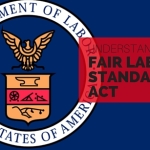To pursue a claim of discrimination or retaliation, you obviously need evidence to support your claim. Evidence comes in many different forms, but one of the most prevalent and helpful forms of evidence is documentary evidence. This would include things like emails, memos, and letters. These are oftentimes important pieces of evidence because they may contain information that is directly related to the allegations of discrimination or retaliation. A supervisor may verbally harass an employee based on a discriminatory reason, but if there is no witness and no recording of that conversation, it can be more difficult to prove.
The Wal-Mart Lawsuit
At the beginning of the year, a federal judge in Georgia sanctioned Wal-Mart for having destroyed evidence in a discrimination lawsuit filed by a former employee. Not only was Wal-Mart ordered to pay nearly $20,000 to the employee’s attorney, but the court even ordered that the jury is allowed to presume that the Wal-Mart supervisors retaliated against the employee who had complained about discrimination. Now this case is a very unique situation. Oftentimes, it is difficult, if not impossible, to prove that an employer has actually destroyed relevant evidence in a lawsuit.
The Wal-Mart lawsuit is an example of the possibility that your employer may not always be playing by the rules. Evidence can be hidden or even destroyed. That is why it is so important that you document the discrimination and/or retaliation while you are still employed. Remember that if you are terminated, you will lose any access you had to files in your office, documents on your computer, and work emails. Keep track of the information that supports your discrimination claim, and while it may violate company policy to take this documentation from your company’s office building, you still have the ability to maintain a chronology of events that shows when certain emails or other written communication were sent and what information was shared.
If you believe that you may be experiencing discrimination or retaliation in the workplace, it is important to contact a discrimination employment lawyer who can advise you about your legal rights and help ensure that all potential evidence is preserved.








